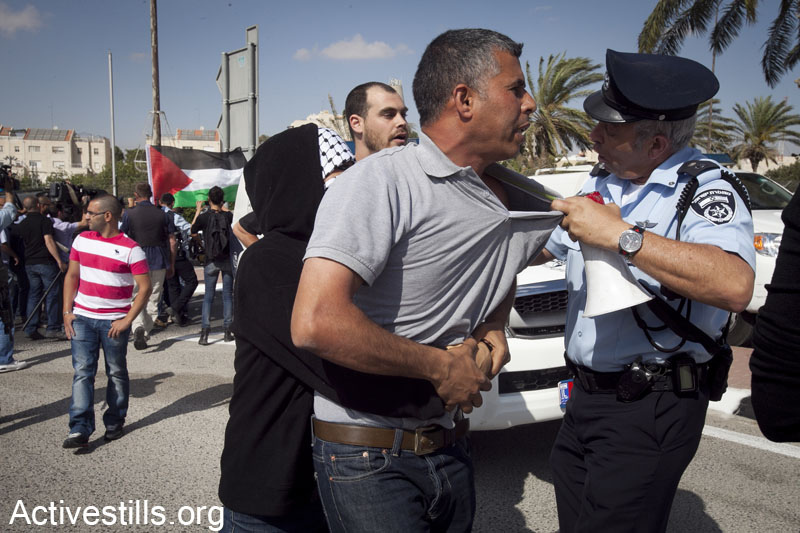Tag: Hunger strike
-
Activists seal off settlement in solidarity with hunger strikers
13 May 2012 | Popular Struggle Coordination Committee Protesters blocked the entrance to the Ma’ale Adumim settlement, meters away from one of Israel’s main interrogation centers in the West Bank. Two protesters were arrested. 50 Palestinian, Israeli and international activists blocked the entrance of the Ma’ale Adumim settlement today, in support of the Palestinian prisoners’…
-
Thaer Halahleh: “My Beloved Lamar…Forgive me”
13 May 2012 “My Beloved Lamar, forgive me because the occupation took me away from you, and took away from me the pleasure of witnessing my firstborn child that I have always prayed to God to see, to kiss, to be happy with. It is not your fault; this is our destiny as Palestinian people…
-
Balata Refugee Camp: The toll of human rights violations and imprisonment
by Alex 9 May 2012 | International Solidarity Movement, West Bank The 9th May marks the 22nd day of the Palestinian prisoners mass hunger strike. Today as with every day, the prisoners’ families and friends met at Nablus Prisoners’ tent in a show of solidarity, paying respect to their sons, brothers, daughters and sisters suffering…

